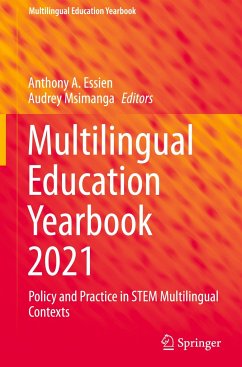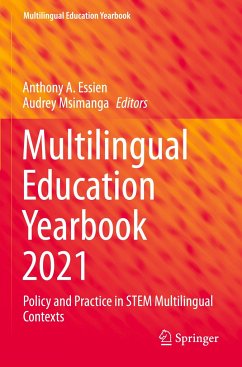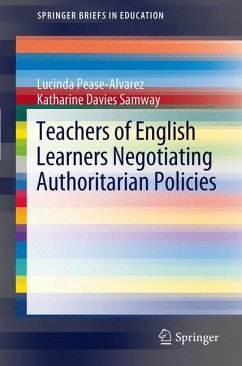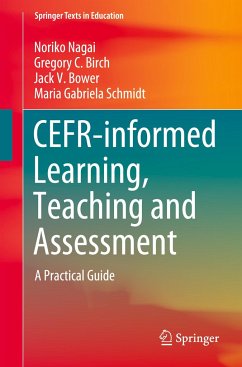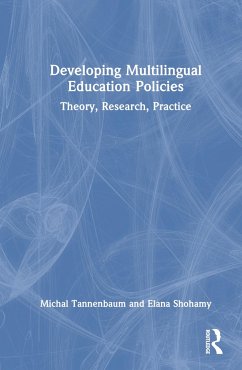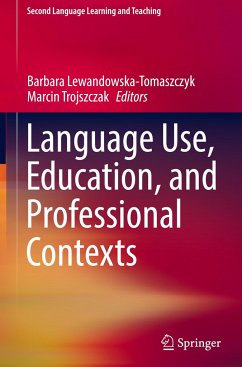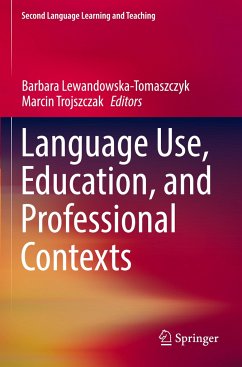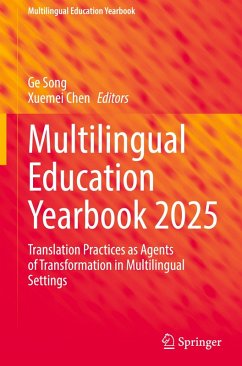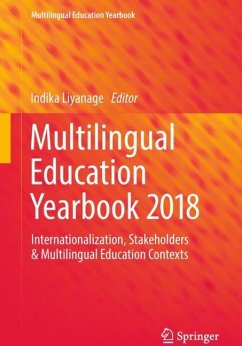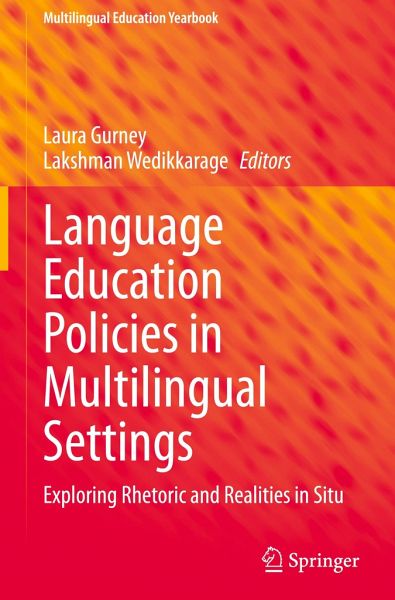
Language Education Policies in Multilingual Settings
Exploring Rhetoric and Realities in Situ
Herausgegeben: Gurney, Laura; Wedikkarage, Lakshman

PAYBACK Punkte
23 °P sammeln!
The volume provides grounded and contemporary insight into multilingual education from diverse perspectives - stemming from the authors' epistemic, cultural and geographic positioning around the world in different educational milieu - and will give both academic and practitioner audiences an up-to-date picture of multilingual education in the early 2020s. Multilingual education policies are continually implemented, re-evaluated and debated around the world, from primary to tertiary education. Fundamentally, however, educational policies manifest in classroom practice; the language envisaged in...
The volume provides grounded and contemporary insight into multilingual education from diverse perspectives - stemming from the authors' epistemic, cultural and geographic positioning around the world in different educational milieu - and will give both academic and practitioner audiences an up-to-date picture of multilingual education in the early 2020s. Multilingual education policies are continually implemented, re-evaluated and debated around the world, from primary to tertiary education. Fundamentally, however, educational policies manifest in classroom practice; the language envisaged in policy becomes the languaging of practice as teachers, learners and stakeholders negotiate educational curricula together. Internal and external forces - from resourcing to the Internet, to broader events such as pandemics and changes in government - shape the landscapes in which policies are enacted. The volume is extending the themes of the Multilingual Education Yearbook series in line with current developments in theory, research and practice. As such, this book provides a wealth of information to practitioners (teachers and teacher educators), researchers in applied linguistics and language education, postgraduate students in the field of applied linguistics, and policymakers.



